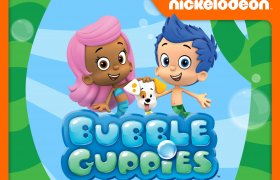Donating Breast Milk: Things you need to know

I Never Imagined
You look down and are flooded with a feeling of absolute euphoria. That beyond beautiful bundle in your arms has brought on emotions and feelings that you never even knew existed. You’ve been blessed with becoming a mother. Now your world involves love that is unending, but also responsibilities that weren’t part of your life before that beautiful baby made its grand entry into this world. There’s diapers, baby furniture, clothes, etc. Most importantly though is the physical well being of your baby.
The Basics
You probably decided long before your baby was born whether you were going to bottle feed or breastfeed. You read every book that you could get your hands on, weighed the benefits of each method, talked to your physician, maybe even talked with some of your friends that are mothers and got their input, and then choose which direction you were going to go. You felt confident that you made a good decision about the best way to take care of your baby. You decided beyond a shadow of a doubt that you’re going to breastfeed. You were fully aware that your breast milk is going to provide your baby with healthy antibodies that can’t be provided through the formula. You read articles about the facts that include studies showing that breastfed babies have fewer digestion issues, fewer chances of being asthmatic, along with a list of other health issues that can be potentially avoided. You’ve also read that breastfed babies often show higher IQ’s later in life. Then there’s the intimacy of the act that creates the undeniable bond between mother and infant. You feel so amazingly confident and good about your decision!
First Time
It’s time for that first feeding in the hospital. The nurse brings your baby in. She gives you a quick lesson on how to hold your baby, how to position your nipple in your baby’s mouth, and to relax and enjoy the experience. She hands you your baby and it’s all up to you now. After a few moments of feeling a bit awkward, as if magically, it all falls in place and your baby begins to suckle. The sight you see is one you’ll never forget. You close your eyes with a feeling of satisfaction, knowing that you made a good decision that will benefit your baby, not only today but in the years to come.
Poof, Gone
Now imagine that the doctor comes in your room and tells you that your baby is dropping weight and that either your not producing enough milk or that your milk doesn’t have enough nutrients for your baby to grow properly. Your elation turns to devastation. You did everything right, You ate healthily, took prenatal vitamins, how can this be? Then the sinking question of “now what” enters your thoughts. You assume that the only option is to go to a bottle and formula. You try to convince yourself that it’s going to be just fine, after all, thousands of babies grow up just fine having been nursed with a bottle and formula, but you know in your heart that you’re bummed. You thank God that you live in a place where the formula is available, unlike some third world countries.
Options
The nurse comes in and asks if you would prefer that your baby is put on formula or donated mothers milk. You’re confused because you have no idea that donated mothers milk is even an option. And so, the questions begin….
Is it safe, who donated it, is it taking milk away from another baby, is it a common practice, is it FDA regulated? You may even wonder what the position of your church is. You ask the nurse to give you an hour to make your decision and you turn to the internet for answers.
 Facts
Facts
Here are some of the things that you find out: The practice of feeding an infant another woman’s breast milk has been around since early Roman times. In fact, it was the wealthy families that would use what was commonly called “nursemaid’s or wet nurses”. In the days of slaves, “black mammies” were commonly used and would nurse their own child along with their masters baby simultaneously. Some countries even embrace the idea of a group of mothers raising their babies together, switching off nursing duties as commonly as we have playdates.
In more recent years, it has become common practice for a woman with an abundance of milk to donate it. They may do this to help another child or to earn a little extra money for their family. This is can be done by signing up with your local HMBANA milk bank. They would ask for a copy of the donators medical records and would run blood tests every six months. The donor would be given sterile bags to package up the milk for freezing. Then, every few months the milk would be sent off via FedEx for overnight delivery to the nearest Mothers Milk Bank. From there, they would test the milk, pasteurize it and send it off to hospitals, where it would go directly to the NICU and be used for a preemie or other babies in need. This could be your baby. Some women sell it directly on websites specifically set up for this purpose. Of course, the risk levels of obtaining mothers milk in this manner is higher, as it’s not been pasteurized.
Relief From Knowledge
The nurse comes into your room with your hungry baby in her arms. You now know that if the occasion was to arise that you had to make that decision, you would be able to make an informed one. You know that you’re fortunate to have a few different options to look at, however you’re thankful that you don’t have to make that choice. You look down at that baby in your arms and that euphoric feeling fills you again. You make the decision right then that should you find yourself producing more milk than your baby needs, you’re going to donate to help another baby get a healthy start in life and its mother can experience this heavenly feeling of knowing its baby is getting the best alternative for them.






